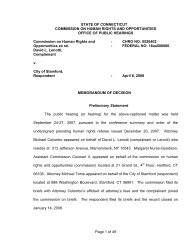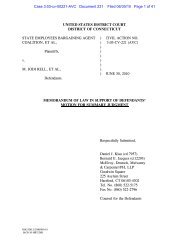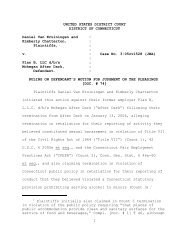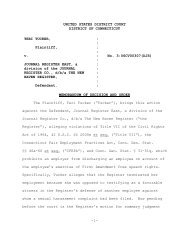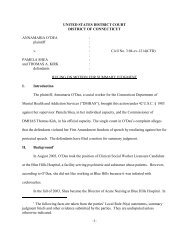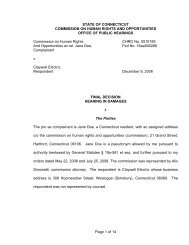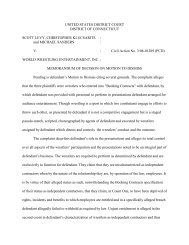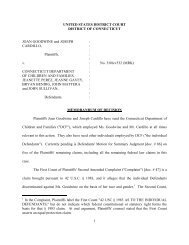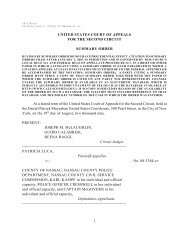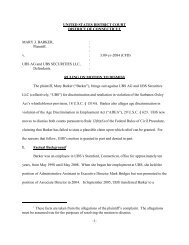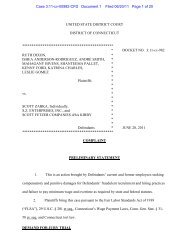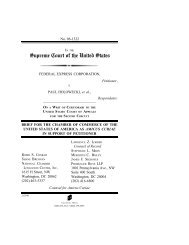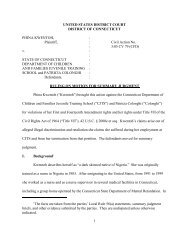Radecki v. GlaxoSmithKline - Connecticut Employment Law Blog
Radecki v. GlaxoSmithKline - Connecticut Employment Law Blog
Radecki v. GlaxoSmithKline - Connecticut Employment Law Blog
You also want an ePaper? Increase the reach of your titles
YUMPU automatically turns print PDFs into web optimized ePapers that Google loves.
(Trial Tr. Vol. I, 152, May 7, 2009.) At no time did <strong>Radecki</strong>have a metastatic brain lesion. Thus, his testimony was falsewhen he testified on May 7, 2009 that in the past, he had beenafflicted with a metastatic brain lesion, and it was also falsewhen he testified that on May 7, 2009 he was then afflicted witha metastatic brain lesion.The false testimony concerned a material matter. Mitigationof damages was a material issue in the trial because <strong>Radecki</strong> hadworked for a very limited period of time after GSK terminated hisemployment, and the testimony was offered as part of his reasonfor failing to obtain a new job. The false testimony was alsomaterial in the context of the entire case because it had tocause the members of the jury to feel a great deal of sympathyfor him. As the court observed on the morning of May 8:[H]aving heard the statement from Mr. <strong>Radecki</strong> yesterdaymyself, I can tell you that I think everybody in thecourtroom naturally felt a great deal of sympathy forhim. It’s only human and it’s quite natural andappropriate.(Trial Tr. Vol. II, 204, May 8, 2009.) Defense counselaccurately described the effect of <strong>Radecki</strong>’s testimony when hestated that “the metastasis with brain involvement, brain lesion,took the air out of the courtroom.” (Tr. of Oral Argument at 20,July 27, 2009.) Although the plaintiff argued that once it hadbeen disclosed that he had stage III prostate cancer, theadditional statement about a metastatic brain lesion did not-9-



